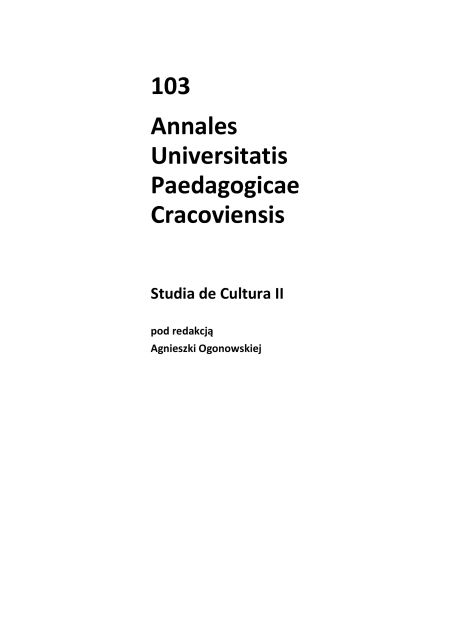Abstrakt
Information, interpretation or ideologization? The Smolensk catastrophe in journalistic photography
The article aims to present the results of the analysis of journalistic photography dedicated to Smolensk air crash. The article contains the analysis of images from different segments of the Polish press: newspapers, opinion weeklies, magazines, the press addressed mainly to women, tabloids. Journalistic photography can be divided into informational and persuasive. The results of the analysis are based on the order dictated by the dichotomous classification. As for the photo information in the press, the author (who is ”invisible” and neutral) presents a picture of the world without distortions, embellishments and deformation. Paradoxically, the Polish press has published relatively little ”transparent” journalistic photography, for which the crash in Smolensk was the theme. It occured that these photographs were read contrary to the intentions of the authors, because the accompanying texts had changed the direction of interpretation. In case of persuasive images, the authors present their own point of view on the phenomena, and thus suggest the interpretation to the recipient. Because of the accelerated presidential elections photo journalism has become a tool of ideological struggle, and even a political struggle. This is demonstrated by the extraordinary popularity of photomontage - the journalistic genre, which has significant potential for propaganda. The involvement of the media in current political struggle draws attention to the phenomenon of political (nekro)marketing. This term means using the death of someone in political struggle. Before April 10 Lech Kaczynski was unpopular politician. After the catastrophe, the president’s image was re-profiled. The image of Jaroslaw Kaczynski - the president's brother, as a candidate in presidential elections has been warmed in the result of these actions. How is it possible that the public image of Jaroslaw became warmer? The articles in the press were illustrated with photographs of the late President in the company of his wife - a person who was, without exception, liked and respected. Furthermore, after a period of national mourning, Jaroslaw Kaczynski was often photographed surrounded by family of the deceased brother.
Bibliografia
Baczyński J. (2010), „Wprost” pod lupą ekspertów. www.wirtualnemedia.pl 29.11. [dostęp12.12.2010].
Zobacz w Google Scholar
Dobek-Ostrowska B. (2004), Podstawy komunikowania społecznego, Wrocław.
Zobacz w Google Scholar
Dobek-Ostrowska B. (2006), Komunikowanie polityczne i publiczne, Warszawa.
Zobacz w Google Scholar
Eichelberger W. (2010), Mitologizowanie tej tragedii jest bardzo niebezpieczne, www.tokfm.pl [dostęp 13.04.2010].
Zobacz w Google Scholar
Gałązka W. (2010), Politycy uprawiają nekromarketing. Jeżdżą na miejsca katastrof, by się pokazać, „Super Express” 15.10.
Zobacz w Google Scholar
Kowalczyk M. (2010), Robiliśmy za polityków, „Press” nr 8, s. 29.
Zobacz w Google Scholar
Kraśko P. (2010), Smoleńsk. 10 kwietnia 2010, Warszawa.
Zobacz w Google Scholar
Olesiak J. (2010), Premier płakał razem z Putinem, „Fakt” 12.04.
Zobacz w Google Scholar
Piekot T. (2006), Dyskurs polskich wiadomości prasowych, Kraków.
Zobacz w Google Scholar
Rose G. (2010), Interpretacja materiałów wizualnych. Krytyczna metodologia badań nad wizualnością, przeł. E. Klekot, Warszawa.
Zobacz w Google Scholar
Semka P. (2010), Lech Kaczyński. Opowieść arcypolska, Warszawa.
Zobacz w Google Scholar
Społeczny portret prezydenta Lecha Kaczyńskiego w roku wyborczym (2010) www.cbos.pl [dostęp 20.10.2010].
Zobacz w Google Scholar
Stankiewicz A. (2010), Profesor bez marynarki, w: Tacy byli. Księga wspomnień o ofiarach katastrofy smoleńskiej, bezpłatny dodatek do „Newsweeka” 19.04.
Zobacz w Google Scholar
Wojtak M. (2004), Gatunki prasowe, Lublin.
Zobacz w Google Scholar
Wolny-Zmorzyński K. (2007), Fotograficzne gatunki dziennikarskie, Warszawa.
Zobacz w Google Scholar
Wróblewski T. (2010), Między barierkami. „Press” nr 9.
Zobacz w Google Scholar

